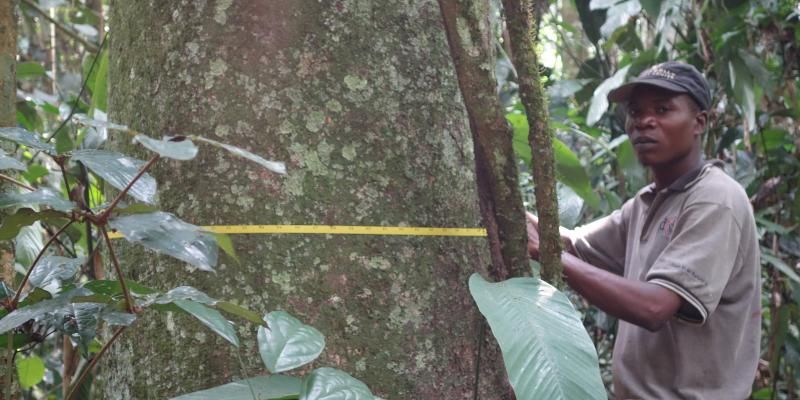
A huge global network of researchers is working together to take the pulse of our global tropical forests.
ForestPlots.net, which is co-ordinated from the University of Leeds, brings together more than 2,500 scientists who have examined millions of trees to explore the effect of climate change on forests and biodiversity.
A new research paper published in Biological Conservation explains the origins of the network, and how the power of collaboration is transforming forest research in Africa, South America and Asia.
The paper includes 551 researchers and outlines 25 years of discovery in the carbon, biodiversity and dynamics of tropical forests.
Professor Oliver Phillips, of Leeds’ School of Geography, said “Our new paper shows how we are linking students, botanists, foresters and policy-makers with the ForestPlots.net technology developed at Leeds.
“This drives a new model of collective research. This is helping to transform scientific understanding of how tropical forests work – and how they are helping to slow climate change.
“In this new synthesis we outline how this collaboration has been built, and trace the exciting potential of collaborative science that reaches across the world's tropical forests to embrace colleagues from all countries and backgrounds.”
Understanding the world’s forests
ForestPlots.net provides a unique place to measure, monitor, and understand the world’s forests, and especially the tropical forests.
Established in 2009, it has grown fast to track 5,138 plots in 59 countries, with a network of 2,512 people.

The collaboration, funded by UK NERC and The Royal Society, aims to promote cooperation across countries and continents, and enable partners to access, analyse and manage the information from their long-term plots.
Professor Phillips added: “Our core approach links long-term, grassroots researchers to generate robust large-scale results.
“This global, diverse community is measuring thousands of forests tree-by-tree in long-term plots.
“By connecting tropical researchers together and valuing the key role of the data originator in scientific discovery, our Social Research Network model of research seeks to support the key workers who make 21st century big data science possible.”
A global collaboration
ForestPlots.net hosts data from many individual researchers and networks including AfriTRON, ECOFOR, PPBio, RAINFOR, TROBIT and T-FORCES.
Working together equitably, the network has shown that long-term monitoring of forests on-the-ground is irreplaceable, making scientific discoveries across the globe.
Through large scale analysis, ForestPlots.net researchers discover where and why forest carbon and biodiversity respond to climate change, and how they help control it with a billion tonne annual carbon sink.
The new research paper, “Taking the pulse of Earth's tropical forests using networks of highly distributed plots”, provides a vision for more integrated and equitable monitoring of Earth's most precious ecosystems.
The collaborative paper is particularly timely as it also highlights the impact Leeds and research partners have made to the understanding of carbon dynamics in tropical forests ahead of the global climate conference COP26, which takes place in Glasgow in November.
Further information
Main image credit: Peter van der Sleen
Second image credit: Simon Lewis, University of Leeds
The paper’s DOI is 10.1016/j.biocon.2020.108849
For media enquiries or to request an interview, contact Ian Rosser in the Press Office at the University of Leeds by email on i.rosser@leeds.ac.uk.